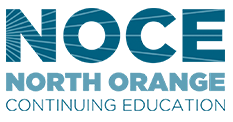
Financial aid (may be available)

Financial aid (may be available)

Financial aid (may be available)

Financial aid (may be available)

Financial aid (may be available)

Financial aid (may be available)

Financial aid (may be available)

Financial aid (may be available)

Financial aid (may be available)

Financial aid (may be available)

Financial aid (may be available)

No cost info

Financial aid (may be available)

Financial aid (may be available)

No cost info
San Joaquin Delta College's Early Childhood Education program offers extensive healthcare certification programs that equip students with the necessary knowledge and skills to succeed in the healthcare industry. The program emphasizes practical training and hands-on experience, preparing students for various fulfilling healthcare careers. One of the program's advantages is its accessibility through flexible online education, allowing students to learn at their own pace and from the comfort of their homes. The program covers essential healthcare subjects and provides valuable clinical experience in real healthcare settings. Experienced instructors offer guidance and support, and networking opportunities with industry professionals are available. Graduates can pursue diverse healthcare careers, such as medical coding and billing, medical assisting, and pharmacy technician positions. Overall, this program combines theoretical learning with practical experience to prepare students for rewarding healthcare careers.
No cost info
$5,478 total
No cost info
No cost info
No cost info
No cost info
Financial aid (may be available)

No cost info

Financial aid (may be available)
No cost info
Are you passionate about working with young children? Do you have a natural ability to connect with kids and help them learn and grow? If so, a career in Early Childhood Education may be the perfect choice for you. By taking Early Childhood Education classes, you can gain the knowledge and skills needed to work in a variety of settings, including preschools, daycares, and elementary schools.

Early Childhood Education involves the teaching and care of young children in their early years. It encompasses a wide range of skills and knowledge, including child development, curriculum planning, behavior management, and parent communication. In Early Childhood Education classes, you will learn about child psychology, educational theories, and practical teaching strategies.
To work in the field of Early Childhood Education, you will need to complete a training program or earn a degree. The specific requirements may vary depending on the state and the job you are seeking. In general, most employers prefer candidates with at least a high school diploma or equivalent. However, earning an associate's or bachelor's degree in Early Childhood Education can provide you with more job opportunities and higher earning potential.
When choosing an Early Childhood Education class, it's important to consider a few key factors. Here are some things to look for:
Accreditation: Make sure the class you choose is accredited by a recognized accrediting body. This ensures that the program meets certain quality standards and will be recognized by employers.
Curriculum: Review the curriculum of the class to ensure it covers all the essential topics and skills you need to succeed in the field. Look for classes that offer a balance of theoretical knowledge and practical experience.
Faculty: Research the qualifications and experience of the instructors. It's important to learn from knowledgeable and experienced professionals who can provide valuable insights and guidance.
Hands-on Experience: Look for classes that offer hands-on learning opportunities, such as internships or practicums. This will allow you to apply the knowledge and skills you've learned in a real-world setting.
In an Early Childhood Education class, you can expect a combination of classroom instruction, group activities, and practical exercises. Here are some of the things you can expect from the day-to-day class:
Lectures: You will attend lectures where the instructor will cover various topics related to child development, teaching strategies, and curriculum planning.
Discussions: You will participate in class discussions to share your thoughts and ideas with fellow students. This will help you gain different perspectives and learn from others' experiences.
Group Activities: You will work on group projects and activities that simulate real-life scenarios. This will help you develop teamwork and problem-solving skills.
Observation and Practice: You will have the opportunity to observe experienced teachers in action and practice your teaching skills under their guidance.
After completing your Early Childhood Education class, you may choose to pursue certification to enhance your job prospects. While certification is not always required, it can demonstrate your commitment to the field and increase your credibility as a professional. The certification process typically involves passing an exam and meeting certain experience or education requirements.
Once you have completed your Early Childhood Education class and obtained any necessary certifications, you will be ready to start your career. Here are some tips on how to find related jobs:
Networking: Reach out to professionals in the field, attend job fairs, and join professional organizations related to Early Childhood Education. Networking can help you discover job opportunities and connect with potential employers.
Online Job Boards: Utilize online job boards to search for Early Childhood Education positions in your area. Websites like Indeed, LinkedIn, and Dreambound can be valuable resources for finding job openings.
Local Schools and Daycares: Contact local schools, daycares, and preschools to inquire about job openings. Many educational institutions prefer to hire locally, so reaching out directly can increase your chances of finding a job.
Once you have gained some experience in the field of Early Childhood Education, you may choose to expand your skills and knowledge by taking additional classes. Here are some other classes you may consider:
Special Education: By taking classes in special education, you can learn how to work with children who have special needs. This can open up new career opportunities and allow you to make a difference in the lives of children with disabilities.
Child Psychology: Understanding the psychological development of children can greatly enhance your ability to connect with and teach them effectively. Child psychology classes can provide valuable insights into the minds of young children.
Curriculum Development: If you are interested in creating educational materials and designing curriculum, taking classes in curriculum development can help you develop these skills. This can be a rewarding career path for those who enjoy creativity and innovation.
Early Childhood Education is a rewarding and fulfilling career choice for those who have a passion for working with young children. By taking Early Childhood Education classes, you can gain the knowledge and skills needed to make a positive impact on the lives of young learners. Whether you choose to work in a preschool, daycare, or elementary school, your role as an Early Childhood Educator will be crucial in shaping the future of our society.
If you're interested in exploring vocational training programs, such as Early Childhood Education or other career options, visit Dreambound. Dreambound is the largest platform for students to find vocational training programs, such as allied health or industrial trades. Their mission is to provide all the information students need to find the perfect class. Visit Dreambound today to start your journey towards a rewarding career.
Dreambound has a bunch of guides about starting in this field, with specific ones for different cities. If you're not in this city or are thinking about moving, check out some other guides below:
Exploring diverse professional options? Dreambound has comprehensive guides to assist you in making well-informed decisions. Take a look at these resources:
Dreambound's platform allows prospective students to find the right educational program for them through searching, filtering, and connecting with our extensive selection of career & technical education partners.
Dreambound has over 70 programs across healthcare, technology, business, and industrial trades. This includes programs such as Medical Billing, Cybersecurity, and welding.
Some of our schools offer financial aid for those who qualify. Many others offer payment plans, where you can pay the cost of class over time.
Yes, Dreambound offers many online programs. On Dreambound's search, you can filter by online, in-person, and hybrid (part online, part in-person).
Dreambound is completely free for you to use! We are supported by schools and organizations who pay to advertise on our website, so we can offer all of our career resources for free.